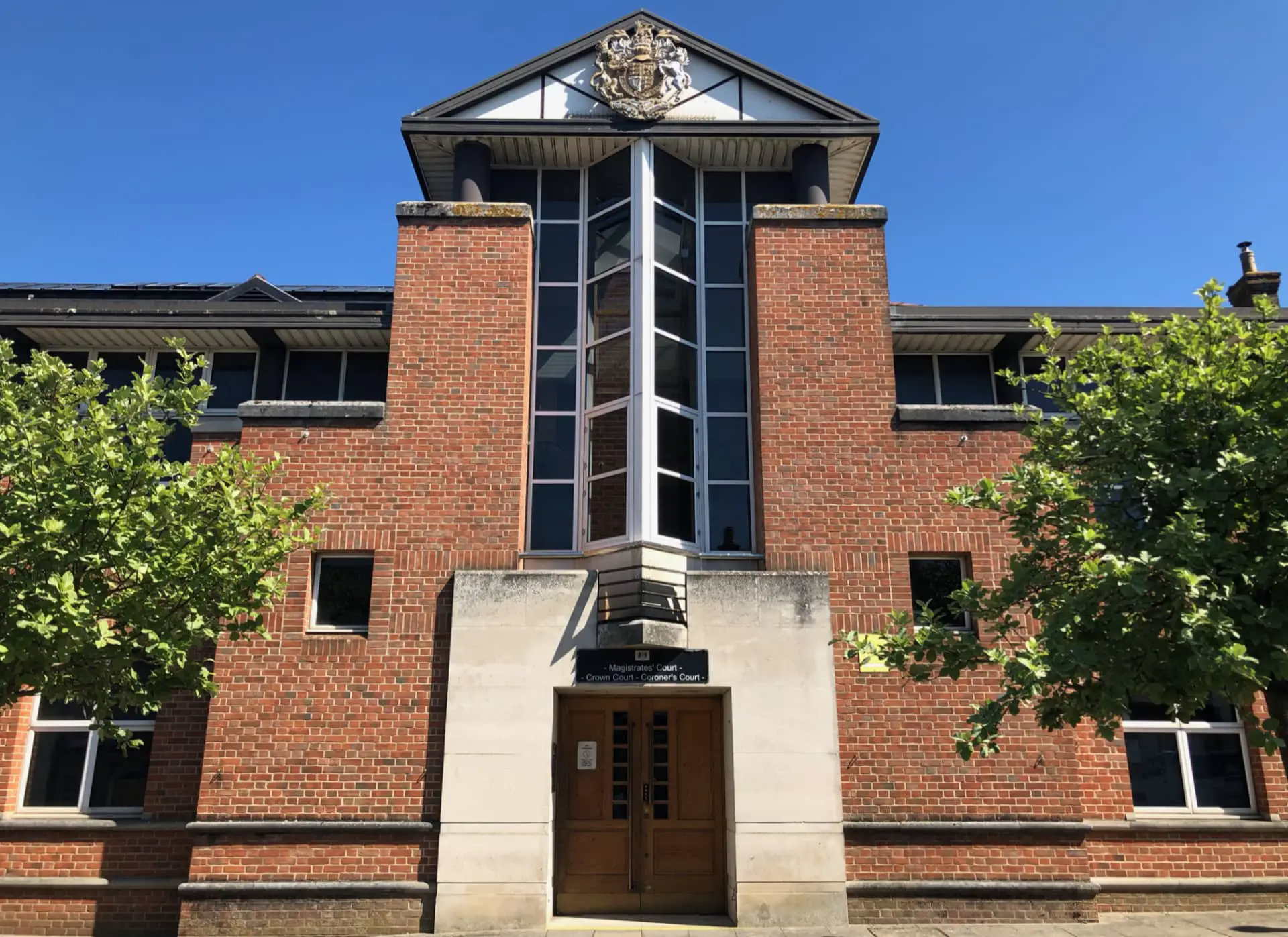According to Coroner Statistics across England and Wales, in 2021 the average time between the report of a death to the coroner and the completion of an inquest increased to 31 weeks.
On the Isle of Wight that figure was 56 weeks (rising from 40 weeks in 2020).
However, as with any sets of statistics the ‘story’ is not always as straightforward as it first might seem.
IW Coroner explains
News OnTheWight got in touch with the Isle of Wight Coroner, Caroline Sumeray, to ask whether there were any other factors (apart from Covid) that have led to the backlog.
We also asked what measures were being put in place to improve the completion time and what support she’d received from the Government.
Comprehensive response
To say her response was detailed would be an understatement. We’re grateful to Mrs Sumeray for taking time out of her clearly incredibly busy schedule to share the full detail as to why there are unfortunate delays in the time it takes to complete an inquest into a death on the Island.
Although Covid did have an impact, it was not necessarily in the way you might expect – the Coroner’s Office continued to work throughout and there was no option for furloughing her staff.
What does seem clear is that the delays that have been building up are out of the Coroner’s control, and she is obviously unhappy by the impact they have on her staff and the families involved.
Doubling of inquests in ten years
Mrs Sumeray begins by setting the scene by outlining some of the changes that have been made in the last ten years. She explained,
“The Coroners Service has changed much in the ten years since I was appointed as the Island’s Senior Coroner, with significant modernisation of the processes, along with the radical changes brought in by the Coroners and Justice Act 2009 which was implemented in July 2013, significantly affecting the workload in the Coroner’s Office with the concept of the Coronial Investigation being introduced.
“My predecessor was carrying out an average of 60-70 inquests per annum.”
However, the Coroner explained that pre-Covid she hearing an average of 130-140 inquests each year. That’s double what her predecessor was having to deal with.
Special Measure at NHS Trust
As reported extensively by News OnTheWight, until last Autumn the Isle of Wight NHS Trust had been in Special Measures for four and a half years.
The Coroner explained that this factor significantly increased the referrals and consequent workload going through her office.
Access to the Courts
With an increased workload, one might imagine that measures could be put in place to ensure a smooth transition through the Courts.
Unfortunately for the Coroner’s Office, this does not appear to be the case. In fact, the barriers that Mrs Sumeray goes on to explain will come as a shock to many. She explained,
“On the Isle of Wight, unlike in most Coronial Areas, there is no dedicated Coroner’s Court, and so I have relied on the council hiring facilities for me to sit at the Court complex in Quay Street.
“Once we were locked down, it was initially impossible for any hearings to happen due to the requirement that the Coroner had to be in Court – so over a year of sitting time was lost over the various periods of lockdown.”
Mrs Sumeray went on to explain,
“When it was possible to return to sitting, but in a limited way, in my usual venue in Court 2 at Quay Street which, it should be remembered, is the small, windowless and largely unventilated courtroom with a complete absence of thermostatic control, I was cautious about taking risks with the health of my small, but vital Coroner’s Office team (some of whom were considered Clinically Extremely Vulnerable or living with elderly parents who were classified in that way).
“I then had to make the difficult decision to prioritise inquests according to their complexity so that those which were considered less complex became the priority for hearing first as the more complex cases tend to involve many live witnesses as these inquests.”
Other factors to take into account
It’s worth noting that inquests usually involve clinicians, “Who in the last two years have still been very much involved in fighting the pandemic,” Mrs Sumeray explained, “and it must be right that the needs of the living should take precedence over the dead”.
During the height of the pandemic, access to Court 2 was limited to five people and this had to include the Coroner and one of her officers, as declared by HM Courts and Tribunals Service (HMCTS) who own the premises.
Other difficulties included the limitations of using Microsoft Teams over the Internet for larger hearings with more Interested Persons, lawyers and witnesses, making it unmanageable for the Coroner.
Number of inquests doubled in a year
In 2020, despite spending half of the year locked down, the Isle of Wight Coroner’s Service heard 105 inquests – most of them involving few or no witnesses, which could be managed more easily.
In 2021, despite starting to sit on 12th April due to lockdown, the Isle of Wight Coroners Service heard a record 206 inquests – most heard online with no live witnesses in attendance.
No pause for the pandemic
Whilst many services halted due to the pandemic, building up a backlog that had to be cleared once lockdown was lifted, the Isle of Wight Coroners Service – just like in other Coronial Areas – did not pause for the pandemic.
Mrs Sumeray explains,
“No days of furlough were possible for me or my very dedicated and hard-working team of Coroner’s Officers as people continued to die during that time who needed a referral to the Coroner, with inquests opening and being adjourned throughout that period as normal.
“Moreover, although Covid-19 is not a referrable cause of death on its own, the lack of availability of GP appointments (specifically face-to-face or video link) has meant a large increase in the number of referrals which we have received, which have had to be investigated – with a significant number of post-mortem examinations, which have meant much more administrative work for my Officers.
“The extension of the 14 to 28-day period in the Coronavirus Act for GPs to have seen their patients without needing to refer them to the Coroner has been more than offset by the fact that with an increasingly elderly population on the Island, GPs are simply unable to offer me a cause of death based on their patient’s previous co-morbidities as they are unable to say what has, in effect, caused the death.”
“Needed to get on with hearing older matters as soon as possible”
When looking at the rise in the last year of the number of weeks it takes to complete an Inquest, Mrs Sumeray added,
“In 2022, we had hoped that we would be able to hear more cases like we used to do, with people in Court able to give evidence in person, which avoids all the technical issues which arise with Microsoft Teams.
“For the reasons I mentioned above, I had allowed the Trust’s clinicians to largely focus on treating the patients during the Pandemic and covering considerable sick leave taken by their colleagues. I also took the practical decision that the Trust needed to try and recover from the Pandemic by getting their usual clinical services up and running again – which meant many delayed elective surgeries were to be carried out, but I did notify them at the beginning of the summer that they had been given a period of grace, but I now needed to start hearing more of the older more complex inquests with their witnesses and that I would no longer allow a 6-week period of notification for these cases because I needed to get on with hearing these older matters as soon as possible.”
She adds,
“I was therefore disappointed to see that the Isle of Wight NHS Trust had declared various crises and critical incidents over the summer due to the number of admissions and the staff available to manage these patients, which has again had an impact on their availability to attend Court.”
Lack of access to court with jury suite
There are a number of inquests which require that the Coroner sit with a jury. Mrs Sumeray explains,
“The only Court on the Island which is properly resourced with a jury suite, including a sequestered assembly room and retirement room, is the Crown Court.
“I have always requested permission to sit there, and latterly have managed to be given approximately four or five fortnights there a year – but it is HMCTS property, and if they require it, they are at liberty to cancel my bookings, which has happened several times this year.
“As of last month, the Presiding Judge has written to me to tell me that due to the backlog of Criminal trials (due to the Pandemic), they are no longer going to be able to provide me with any time in the Crown Court to hear my jury inquests.”
The Coroner told News OnTheWight that she’s currently investigating a number of possible alternative venues with the Isle of Wight council, who are obliged under s.24 of the Coroners and Justice Act to provide her with appropriate resources so that she may be able to discharge her statutory function.
Complaints about Court 2 not acted on
The Coroner explained that many requests about the poor ventilation and lack of thermostatic control in Court 2 had been made to HMCTS. She added,
“After several days sitting there where the temperature has been in excess of 27°C, which has been unbearably hot for all concerned and is therefore not appropriate for judicial hearings to be held, HMCTS has not carried out any remedial works to improve the situation.”
Extra staff to help clear backlog
The Isle of Wight council has endeavoured to recruit additional staff to support the Coroners Service, and it is hoped that with the appointment of Assistant Coroners in due course, they’ll be able to run two courts to hear the outstanding inquests.
Mrs Sumeray finished by saying,
“It’s fair to say that all Coroners have struggled with the restrictions imposed by Covid to a greater or lesser extent, and this has caused most of us to have some degree of delay in the hearing of inquests.
“Some areas are better resourced and are able to make greater inroads into their backlog than others.
“It should be mentioned that with a single NHS Trust on the Island which has been severely impacted by Covid-19, the Coroners Service has been significantly affected.
“Over time, the situation is improving and will continue to improve, but provision of this service requires cooperation from a number of significant stakeholders.”
Additional funding?
However, with regard to any possible Government funding, Mrs Sumeray told News OnTheWight that none has been made directly to the Coroners Service. She said,
“I believe that money to help Local Authorities recover from Covid-19 has been received by the council, but I have not been told that any of it has been allocated to my Service.”
The Isle of Wight council told News OnTheWight,
“The coroner’s service has received Covid funding to secure an additional coroner’s officer for a year, which we have recently recruited to in order to better support the coroner in discharging her duties.”
The coroner explained to News OnTheWight that this role is for a part-time admin assistant, who has no previous experience of working in a coroner’s office.
Background to the stats
The stats quoted at the start of this article were revealed in the written answer to a question posed by Baroness Hodgson of Abinger to the Secretary of State for Justice.
Baroness Hodgson had asked,
“Whether there is a backlog for inquests in the Isle of Wight; and if so, what steps they are taking to clear that backlog.”
The Baroness also asked,
“What is the average time it takes from death to holding an inquest, where necessary, and what assessment they have made of the experience of families waiting for an inquest to take place; and what bereavement support they are providing to these individuals.”
Bellamy: A number of pressures experienced as a result of the pandemic
Lord Bellamy, The Parliamentary Under-Secretary of State for Justice, replied,
“The Coroner Statistics 2021: England and Wales, published on 12th May 2022, indicate that, on average in 2021, the time between the report of a death to the coroner and the completion of an inquest increased to 31 weeks (up from 27 weeks in 2020), although almost a third of coroner areas completed inquests within 24 weeks. Figures are also published by coroner area: for the Isle of Wight coroner area, the average time for completion of an inquest was 56 weeks (from 40 weeks in 2020).
“Coroner services are locally based and funded and administered by the relevant local authorities. The Government recognises that local authorities have experienced a number of pressures as a result of the pandemic. During 2021, coroners dealt with both the impacts of the early stages of the pandemic and the ongoing effect of Covid, including a second lockdown and continued social distancing measures which, in particular, affected the ability to hold jury and other large and complex inquests.”
Measures to streamline coroners’ court processes
Lord Bellamy went on to add,
“We have provided £6.15 billion in unringfenced grant funding to local authorities in England to support the cost of pandemic pressures which could include additional costs incurred in the administration of coroner services. Funding for local authorities in Wales is a devolved matter. The Chief Coroner has issued guidance to coroners on how their services can best recover from the pandemic, including engagement with local authorities on any additional resources required. He is also undertaking a tour of all coroner areas to engage with them on their post-pandemic recovery plans.
“In addition, we included a package of measures in the Judicial Review and Courts Act 2022 to streamline coroners’ court processes and support the coronial system with post pandemic recovery plans.
“The Government’s priority is to ensure that the bereaved remain at the heart of the coroner system. In January 2020, we published a revised Guide to Coroner Services for Bereaved People which provides support and information for the bereaved about what they should expect from coroners’ investigations and inquests, and includes information on sources of bereavement support.”
You can find out more by visiting the Guide on the Government Website.
Article edit
8.30am 24th Aug 2022 – Section on lack of funding added
9am 25th Aug 2022 – Comment from IWC about Covid funding
10:30am 25th Aug 2022 – Details of additional role added
12:30pm 5th Oct 2022 – Ref to special measures changed from 3 1/2 years to 4 1/2 years





